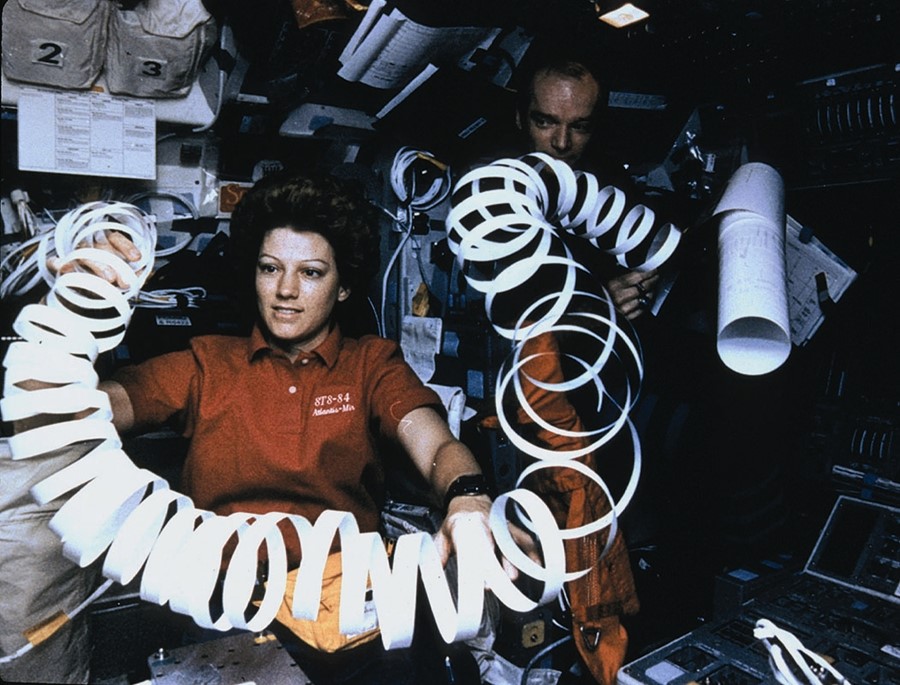The final instalment comes from the A/W13 issue of AnOther; an extract of our interview with pioneering space explorer Eileen Collins
Our journey through the AnOther archive has covered thirteen and a half years, and today it has returned to the present, celebrating the features and fashion that make up the current, 25th issue of the magazine, starring Cate Blanchett. Today is also the final day of World Space Week, an annual initiative designed to tip all our chins upwards to the sky and ponder the mysteries that lie in the infinite darkness beyond our flimsy atmosphere.
For the A/W13 issue, we took travel as our theme, ranging from holidays and escapism to those individuals who had journeyed far beyond the parameters of their chosen trades. The latter concept was exemplified by Eileen Collins, NASA’s first female space shuttle commander, so in honour of both the last AnOther Flashback and World Space Week, here we present an absorbing and thought-provoking extract from her discussion with super/collider’s Chris Hatherill, covering her memories of her four trips into space as well as why, as the future of the US space program’s future remains uncertain, she believes that space exploration is an enduringly noble goal.
"In January 1995, after months of training, [Eileen] Collins and six other astronauts began final preparations for NASA mission STS-63: her first flight into space. Besides literally blasting through the glass ceiling, the flight would be only the second of the new joint American-Russian space effort. After lifting off from Florida at night, Eileen and Commander James Wetherbee steered Space Shuttle Discovery towards a rendezvous high above the earth with MIR – Russia’s orbiting space station. Like many astronauts, Collins says that first flight into space changed her fundamentally.
“Your desire to care about the planet changes when you go into orbit,” she explains. “You see how thin the atmosphere really is, and you see fires burning. You see land being cleared, erosion coming down rivers. You can see thunderstorms, sometimes you see clouds with lightning flashing. You can see the wakes of ships in the middle of the ocean, hurricanes and volcanoes, and at night you can see the city lights – all the different man-made and natural phenomena on the planet. It changes the way you think about the earth and it also changes your perspective on life. After my first flight, I would say my stress level went down; I was more tolerant of people; I was more patient. I was more protective of the planet – it was just a good human experience. When you look back, you see a round planet with an atmosphere that’s like the skin on an apple – it’s so thin, it’s a little bit scary. We are these tiny little dots living on the surface of this fragile ball.”
"You see a round planet with an atmosphere that’s like the skin on an apple – it’s so thin, it’s a little bit scary. We are these tiny little dots living on the surface of this fragile ball” — Eileen Collins
Despite the physical challenges experienced on her first trip, two years later Collins was gearing up to go back into space again. The flight was a routine re-supply mission which would see her returning to MIR with nearly four tons of supplies, and much more free time. She remembers her second flight fondly for the hours she spent at the window, high above the world. As she explains, astronauts are usually kept too busy to admire the view, “but my second and fourth flights I did have time – in fact it was one of my jobs. We were docked to MIR on STS-84 and I was doing a photo survey of its solar arrays. I also had time to photograph Comet Hale-Bopp and the moon, and just watch the earth. You float over the planet like you’re some kind of Greek god, looking down on Europe, or the Middle East – the cradle of civilisation and the biblical regions. You’re looking down, and there could be a billion people in the area you’re looking at. And they all have a story. And they all have problems. It’s just mind-boggling, the scale. It’s such a privilege, and I think we’ll be better off, as a people, if more of us can have that experience”."
For the full article, and for all 25 issues in the AnOther Magazine archive, visit Exact Editions.
